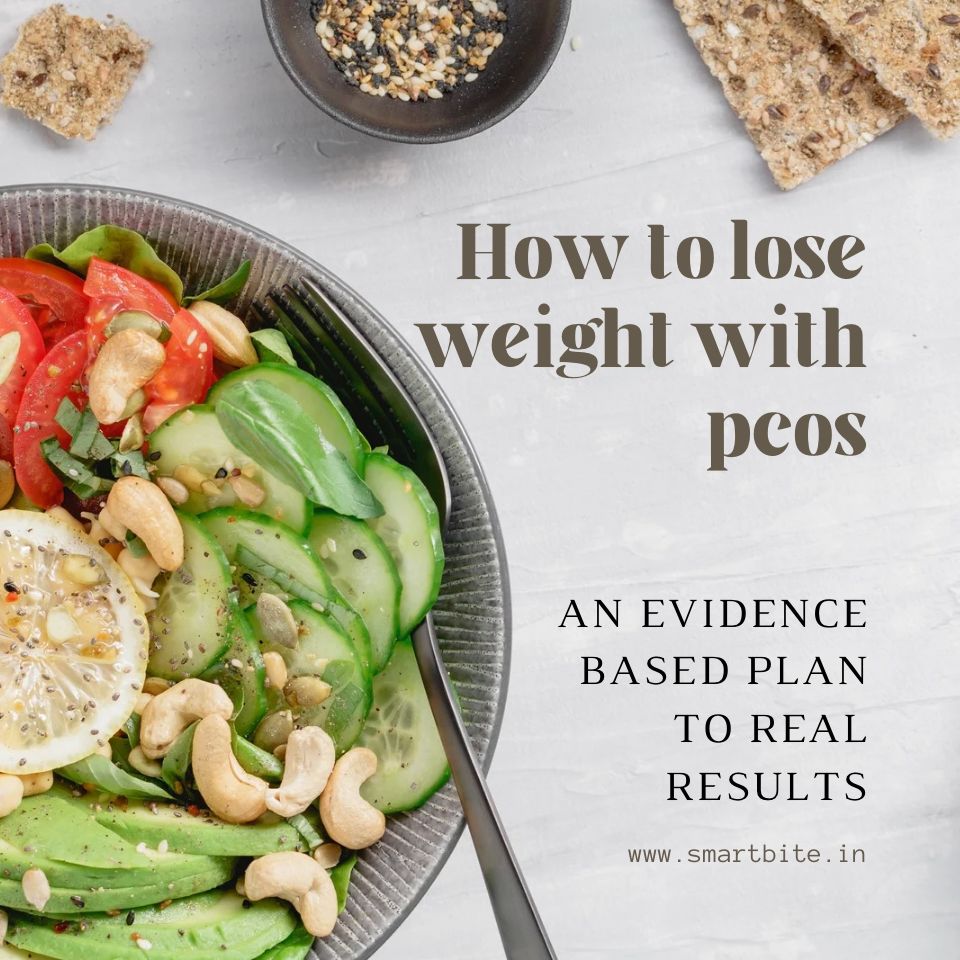Introduction:
Polycystic Ovary Syndrome (PCOS) or Polycystic Ovary Disease (PCOS) is a hormonal disorder that affects a lot of women. Weight Gaining: Weight gain is one of the most common and challenging symptoms of PCOS, which results from the hormonal imbalance, which leads to insulin resistance. This can give you a hard time losing weight, but that is not a problem, since the right diet can help you and you can lose weight easily.
On this blog we will discuss an easy and sustainable diet chart for weight loss with PCOD or ingredients you might already have in your indian kitchen. To lose weight, priority is given to a change of diet and a lifestyle that also includes regular exercise and stress management.
1. Start with a Protein-Rich Breakfast
Most experts consider breakfast as the most important meal of the day, particularly for women suffering from PCOD. A breakfast higher in protein maintains stable blood sugar levels, enhances the sensitivity of our insulin (the hormone that regulates blood sugar) and minimizes hunger between breakfast and lunch. This helps you avoid overeating during the day.
Healthy Breakfast Options:
Chia and almond oats: Oats are rich in fiber and help regulate insulin. Mix in chia seeds and almonds for added protein and healthy fats.
Vegetable Poha: A healthy low-GI meal for PCOD patients, vegetable poha is prepared from beaten rice and vegetables like peas, carrots, and beans. You can also throw in a small handful of roasted peanuts for some extra protein.
Eggs & Toast: Protein and healthy fats come from eggs, while whole wheat bread can help maintain energy levels.
- Focus on Low-Glycemic Foods
One of the reasons why different diets work for female PCOD patients is that women with PCOD struggle with insulin resistance, which causes them to gain weight and can lead to other complications. The secret is eating low glycemic index (GI) foods, which release sugar slowly into the bloodstream and avoid insulin spikes. It also aids in blood sugar control and hunger regulation.
Low-GI Foods to Include:
Brown Rice and Quinoa — Brown rice and quinoa have more nutrients than white rice. They are high in fiber, help regulate blood sugar, and assist with digestion.
Millets (Bajra, Jowar, Ragi) – They are rich in fibre content, protein and rich in nutrients. They fill you up for longer and avoid insulin spikes.
Lentils and Pulses: Dal, chickpeas, and kidney beans are good sources of plant-based protein and fiber, making them ideal for weight loss with PCOD.
- Include Healthy Fats in Your Diet
Eat Healthy Fats
Healthy fats are important for everybody but especially for women with PCOS. They help to regulate hormones, reduce inflammation, and support healthy metabolism. Healthy Fats-Adding healthy fats into your diet is another way to help you feel full, and will help fight those hunger cravings.
Healthy Fats to Include:
Nuts & Seeds — almonds, walnuts, flaxseeds, and chia seeds are all amazing sources of healthy fats and omega-3 fatty acids. These combat inflammation, enhance heart health, and regulate appetite.
Avocado: Avocados are high in monounsaturated fats, which support healthy hormone levels and heart health.
Olive Oil: An insulin-supportive healthy fat that can be used for sautéing, or in salad dressings.
- Prioritize Fiber-Rich Foods
Fiber is essential for weight loss and gut health. It keeps you satiated for longer, controls your overeating, and enhances digestion. It also helps regulate blood sugar level and increases insulin sensitivity.
Fiber-Rich Foods to Include:
Leafy greens: Spinach, kale, methi (fenugreek), and other dark leafy greens are low in calories and high in fiber, which makes them great for burning fat.
Fruits: Apples, pears, and berries are excellent fruits for PCOD patients because they are high in fiber and antioxidants that promote overall health and digestion.
Vegetables: Daily add high-fiber vegetables, such as carrots, bell peppers, broccoli, and cucumbers to your meals. They are low in calories and assist in relieving bloating.
5. Stay Hydrated and Drink Herbal Teas
In addition, drinking plenty of water (or herbal teas) can help flush out toxins and prevent bloating while supporting digestion. Hydration also helps your energy levels throughout the day.
Hydration Tips:
Water: 8-10 glasses of water should be consumed daily as it keeps the body hydrated and helps the metabolic processes.
All types of tea, especially green tea, are high in antioxidants and can also increase metabolism. So, it helps with weight loss when you drink a cup of green tea in the morning.
Ginger and Peppermint Tea: Herbal teas such as ginger tea or peppermint tea help with digestion, reduce bloat and calm an upset stomach. Due to its anti-inflammatory properties, ginger in particular helps manage PCOD symptoms.
6. Have Balanced Lunch and Dinner
Eating a meal including lean proteins, healthy fats and whole grains, is essential to balancing insulin levels, thus aiding in weight-loss with PCOS. Lunch and dinner should also be light yet nourishing to aid digestion and prevent bloating.
Lunch and Dinner Healthy Choices:
Grilled Chicken with Quinoa or Brown Rice Grilled chicken is a lean protein that is also easy to digest. Serve it on quinoa or brown rice for a complete meal.
Vegetable Stir-Fry with Tofu or Paneer: Tofu and paneer are good sources of plant-based protein. Stir-fry them with things like bell peppers, carrots and zucchini.
Roasted Dal (Lentils) with Roti or Brown Rice: A simple and healthy meal of lentils paired with whole wheat roti or brown.
- Include Probiotics for Gut Health
Don’t eat sugary and processed foods
It leads to blood sugar spikes that are difficult to regulate in case of PCOS. Steer clear of sugar, refined carbs, and unhealthy fats — foods that drive weight gain, insulin resistance, and inflammation.
Foods to Avoid:
Sugar-Bombs (Confectionary and Sugary Drinks): No candy, cake, sugary sodas, or packaged juices that are packed with sugar and empty calories.
The present study was carried out as a part of the ISGI Clinical Trial (a randomized controlled nutritional study) that assessed the impact of a low-glycemic index (GI), high-fiber control diet versus a normal diet on various metabolic aspects of 559 obese adolescents (aged 10–17 years) over 24 weeks.
Refined Carbs: Foods such as white bread, white rice and pastries can cause blood sugar levels to rise. Opt for whole grains instead.
Sample Diet Chart for Weight Loss with PCOD
Here’s a simple, practical diet plan for weight loss with PCOD:
- Breakfast: A bowl of oats with chia seeds, almonds, and a cup of green tea.
- Mid-Morning Snack: A handful of walnuts and a small apple.
- Lunch: Grilled chicken with quinoa or brown rice, and a side of mixed vegetables.
- Evening Snack: A cup of herbal tea (like ginger or peppermint tea) and a small handful of almonds.
- Dinner: Lentil soup (dal) with a whole wheat roti and a side of leafy greens like spinach or kale.
Conclusion:
For weight loss, stick to a PCOD-friendly diet full of low-GI foods, high proteins, healthy fats, fiber, and adequate hydration to reach your weight loss target. In addition to making these dietary changes, continue to maintain regular physical activity, address stress and sleep to balance hormones and support overall health.
If you’re unsure where to start, working with a dietitian or your healthcare provider can help you develop an individualized plan based on your specific needs.






